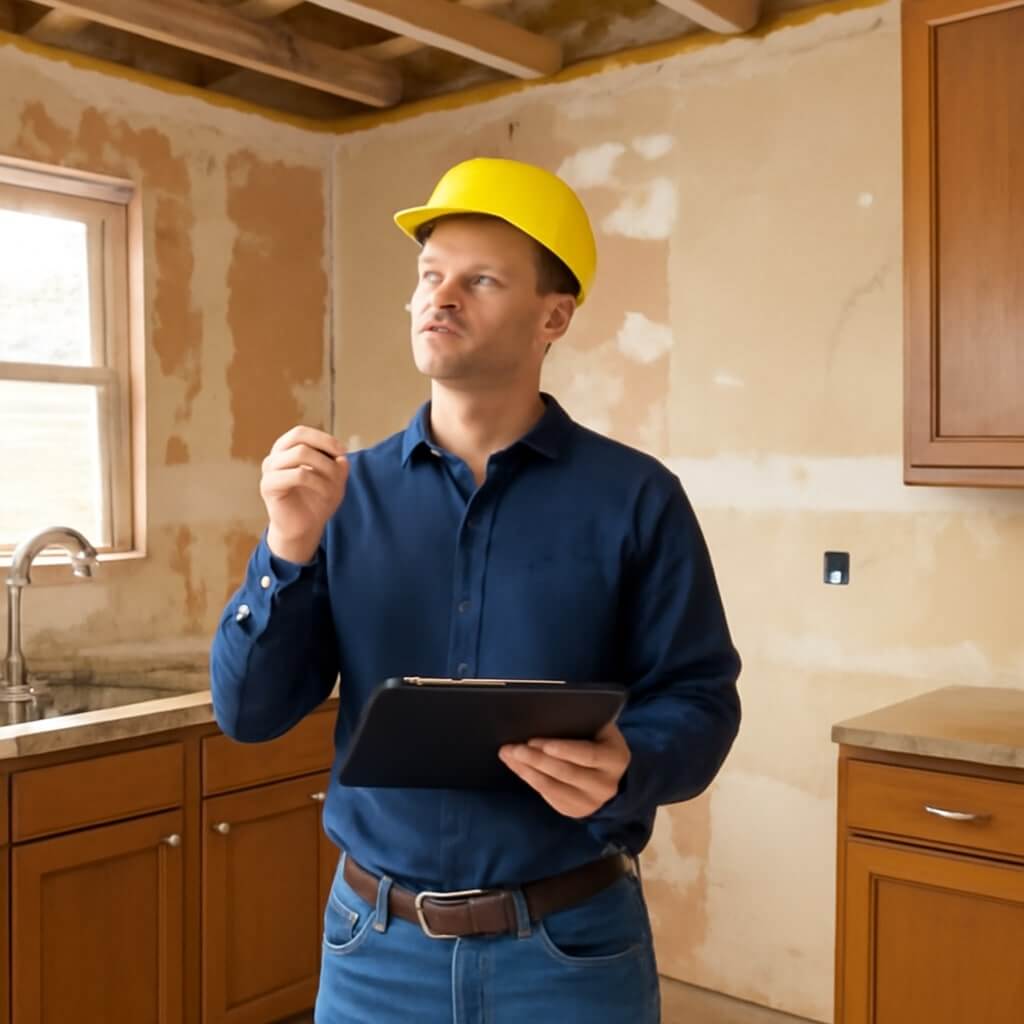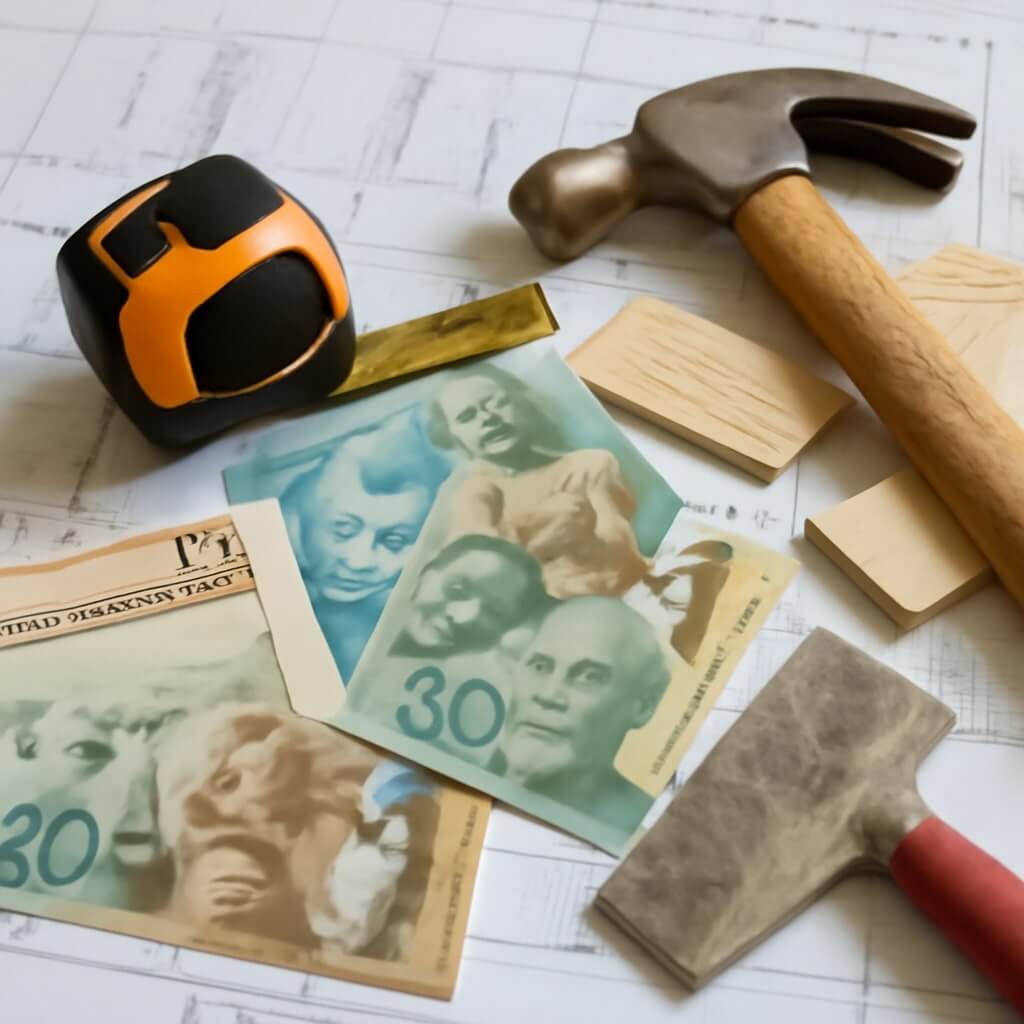When you schedule a home renovation inspection, you can expect a thorough assessment of your property by a qualified inspector. They’ll scrutinize essential components like the foundation, electrical systems, and plumbing. This evaluation aims to uncover any potential issues that could disrupt your renovation goals. Understanding what to anticipate can help you prepare effectively and address any findings. So, what exactly should you focus on during this critical process?
Key Takeaways
- Expect a thorough assessment of the property’s structural integrity, including foundation, roofing, and insulation conditions.
- The inspector will evaluate electrical systems for safety and compliance with current codes.
- Plumbing systems will be checked for leaks, pipe integrity, and proper drainage functionality.
- Be prepared for potential issues that may delay the renovation project, such as code violations or structural concerns.
- After the inspection, you’ll receive a detailed report that highlights findings and prioritizes necessary repairs.
Understanding the Role of Home Inspectors
When you’re starting a home renovation, understanding the role of home inspectors is essential, as they provide an objective assessment of your property’s condition.
Qualified inspectors possess specific certifications and extensive experience, ensuring they can accurately evaluate structural integrity, electrical systems, and plumbing.
The inspection process typically involves a thorough examination of both visible and hidden areas, identifying potential issues that could affect your renovation plans.
Key Areas Inspectors Focus On
Home inspectors focus on several key areas that are critical to your renovation project.
Understanding these areas can help you guarantee compliance and safety:
Comprehending these critical areas ensures your renovation project meets necessary compliance and prioritizes safety.
- Foundation Integrity: Inspectors assess cracks, shifts, or signs of water damage, which can compromise the structure.
- Electrical Systems: They evaluate wiring, outlets, and circuit breakers to guarantee they meet safety standards.
- Plumbing: Inspectors check for leaks, pipe integrity, and drainage issues.
- Roofing and Insulation: They examine the roof condition and insulation quality for energy efficiency.
Common Issues That May Arise
Although you may have a solid renovation plan, common issues can still arise during the inspection process that could derail your project. Inspectors often uncover structural concerns, such as foundation cracks or load-bearing wall modifications, which could compromise safety.
Additionally, code violations might surface, including improper electrical wiring or insufficient plumbing standards. These issues not only delay progress but can also lead to costly rework.
Addressing them promptly and thoroughly is essential for maintaining compliance and ensuring your renovation meets safety requirements. Awareness of these potential pitfalls can help you navigate the inspection process more effectively.
Preparing Your Home for Inspection
Before the inspection, taking proactive steps to prepare your home can greatly impact the outcome.
By following this inspection checklist, you’ll enhance home accessibility and make the process smoother.
- Clear Pathways: Verify all areas are easily accessible, removing any obstacles or clutter.
- Check Utilities: Confirm that all utilities (water, electricity, gas) are operational and in good condition.
- Document Repairs: Gather any paperwork for completed renovations or repairs to show the inspector.
- Address Safety Issues: Fix any safety hazards, like loose railings or exposed wires, to prevent negative findings.
These preparations can lead to a more favorable inspection.
What Happens After the Inspection?
Once the inspection concludes, you’ll receive a detailed report outlining the findings, which will serve as an important tool for your next steps.
This inspection report highlights any issues or areas needing attention, allowing you to prioritize necessary repairs. You’ll want to carefully analyze the findings and determine your follow-up actions.
This might include contacting contractors for estimates, planning repairs, or even revising your renovation strategy. It’s vital to address any significant concerns promptly to guarantee your project stays on track.
Reviewing the inspection report thoroughly will help you make informed decisions moving forward in your renovation journey.
Conclusion
In summary, a home renovation inspection is an essential step in ensuring your project’s success. By understanding the role of inspectors and the key areas they evaluate, you can better prepare for potential issues. Addressing common concerns identified during the inspection will not only enhance your property’s safety but also help you prioritize repairs effectively. Ultimately, this thorough evaluation equips you with the necessary insights to move forward confidently with your renovation plans.




